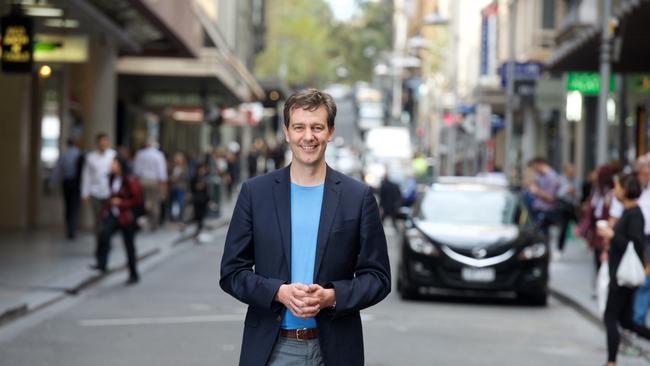Companies that boast about diversity often fail to deliver, Culture Amp data finds
Companies that talk about their diversity and inclusion policy often fall short of delivery, the results of a survey show.

Only just over half of women say their perspectives are being included at the decision making level at work, according to the results of a new survey, which also found that women who work for companies which publicly advertise their diversity, equity and inclusion (DEI) plans are often worse off.
DEI spending has generally been cut due to the current economic uncertainty and several months of rising interest rates.
The survey found companies which publicly boasted or advertised their DEI plans had since cut their budgets in that area and were not making those cuts public, Culture Amp said.
The HR tech platform has released data which shows that the value of diversity in companies dropped by 9 per cent over the past 12 months.
The survey, which examined responses from more than 3600 companies, found that just 55 per cent of female respondents who work at companies which publicly displayed their DEI policies said perspectives like theirs were being heard at a decision making level.
That number compared with men, 70 per cent of whom said their perspectives were represented.
At companies that did not publicly share their DEI oplans, there was a 4 per cent difference with 59 per cent of women saying their perspectives were heard.
Culture Amp senior director of people Aubrey Blanche-Sarellano said there were some interesting language differences between companies which claimed to be diverse as opposed to those which said they were working towards it.
“Companies that I would say are more likely to be performative or maybe have some growth to do in their approach talk about being a diverse and inclusive company,” she said.
“Whereas companies that I think have the right mindset to actually make the right change will talk about aspiring to be equal or working towards being an equitable company.”
Ms Blanche-Sarellano has worked in the diversity field for close to a decade, including roles with Atlassian in San Francisco. Australia had a very gender-focused approach to diversity compared with the US, and it often let down other marginalised groups, she said.
“In Australia, the majority of DEI practitioners are white women, and so for them gender is going to be the most salient thing that they think about,” she said.
“I really believe that that focus on gender ultimately let down the end project of diversity. I really believe that programs that focus on anti-racism and disability inclusion, which is what we tend to spend the majority of our time on at Culture Amp, tend to address some of the more deep-seated challenges that ultimately lead to improvement for other groups as well.”

Culture Amp founder and chief executive Didier Elzinga said missed gender targets were viewed as “unforgivable”.
“The thing about gender is that it is an ever present challenge. In the Australian context, it’s unforgivable to be 10 per cent women,” Mr Ezinga said.
He said some companies limited their DEI efforts to initial hiring and failed to realise that employees of diverse backgrounds needed further support than a foot in the door.
“Running a more diverse company is harder than running a less diverse company but it’s more fulfilling and creates a better outcome,” he said.
“It’s harder particularly because to begin with, you’re now dealing with voices you’re not used to dealing with.
“There are definitely performative companies that think doing DEI is making a commitment on their web page and forget about all the work that goes into actually delivering on that.”
While there wasn’t any data to support any cut in DEI spending to the outcome of the referendum over the weekend, Ms Blanche-Sarellano said companies often played an important role in connecting different communities.
“What we know is that people tend to get access or have experiences with people who are most different from them in the workplace,” she said.
“As companies or organisations pull back from prioritising these things (such as DEI), it can in sort of a soft way, contribute to people sort of not engaging with topics that they perceive don’t directly impact them or stop them from engaging with different and educational opportunities that come along with that.”
It was also true that people from marginalised backgrounds tend to be “disproportionately affected” by lay-offs, she said.
“Part of that, you could say, comes down to simple discrimination, but I think that probably a more accurate story is that those people tend to be represented in roles that are more likely to be caught in lay-offs which might be junior roles or non-core research and development roles,” Ms Blanche-Sarellano said.







To join the conversation, please log in. Don't have an account? Register
Join the conversation, you are commenting as Logout